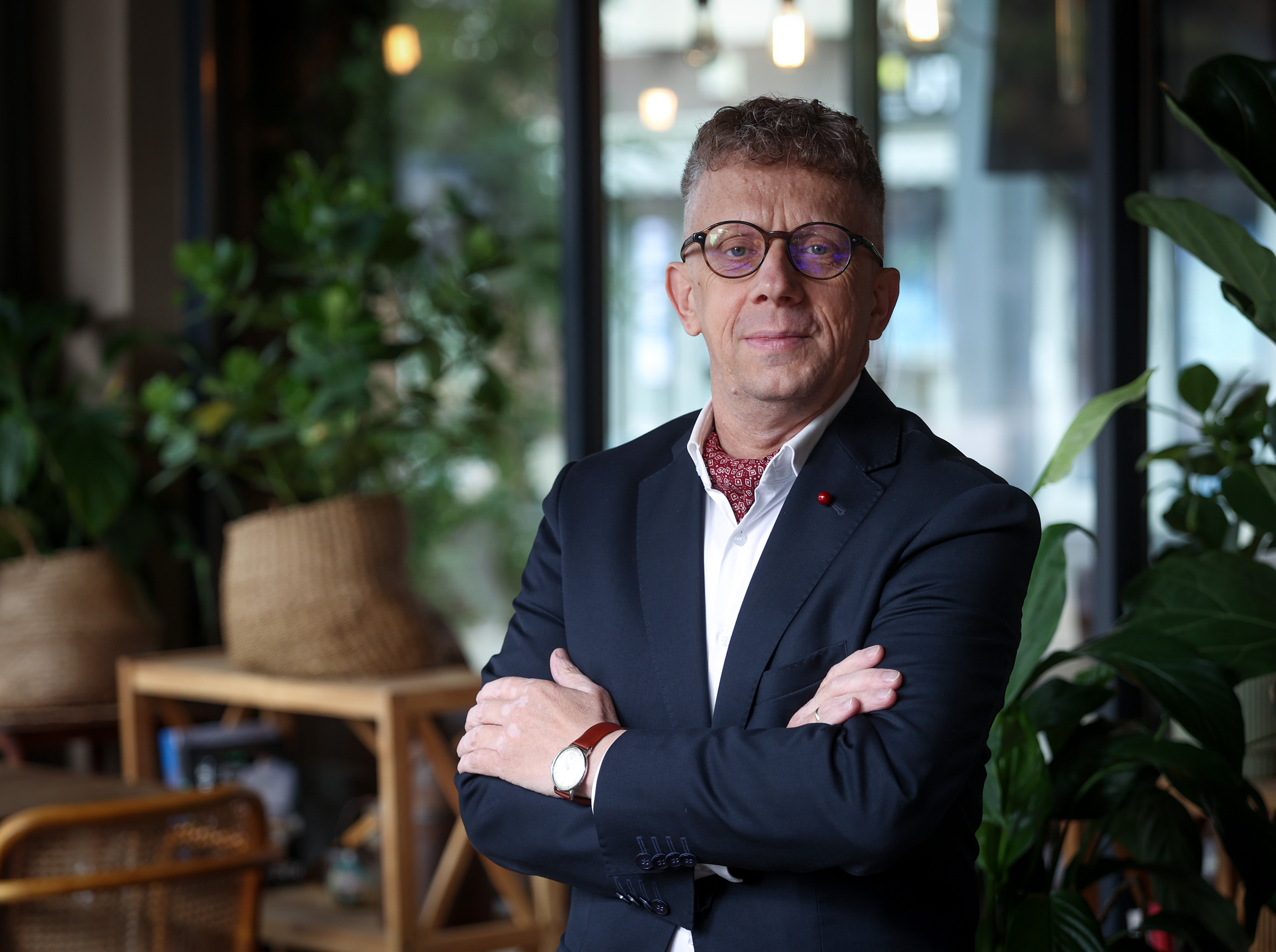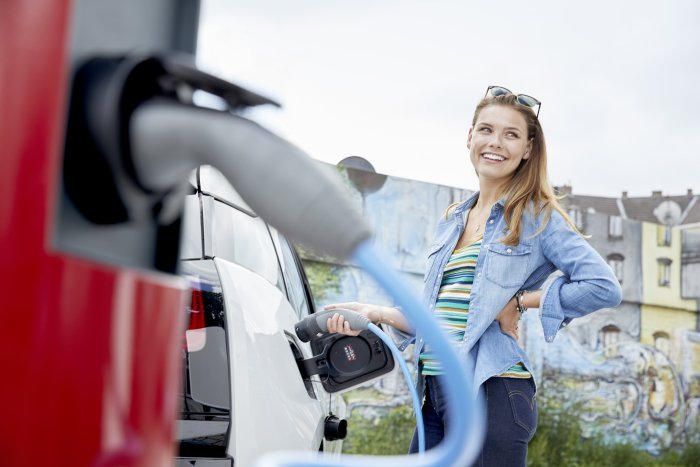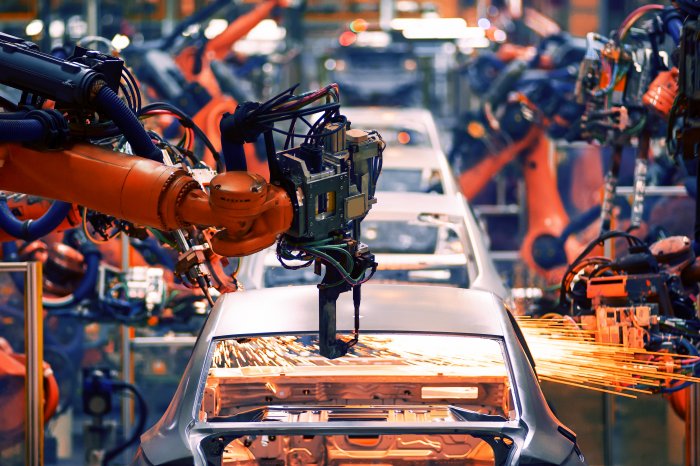GreenTech Returns to ZalaZone for 4th Time to Talk Energy Matters

Károly Kovács, project manager of the Zalaegerszeg Green Energy and Sustainability Exhibition and Conference.
Photo by Péter Seres.
Sustainability conference GreenTech will hold its fourth annual conference on May 25-26. Returning to Hungary’s ZalaZone Vehicle Test Track, the expo advocating environmental awareness and more sustainable business has grown in the past three years and is eying further expansion.
Over the years, the forum has welcomed six ministers, six state secretaries, 60 institutional and corporate expert speakers, 200 exhibitors, and 1,000 attendees and shipped 2,000 local students to the event for free from nearby localities.
At the start, however, success was far from certain. The first GreenTech event opened in the shadow of the approaching first wave of the coronavirus pandemic in 2020.
“We were in the midst of uncertainty and restrictions. Despite this, the event received a lot of interest, both from participants in person and online,” Károly Kovács, project manager of the Zalaegerszeg Green Energy and Sustainability Exhibition and Conference, recalls for the Budapest Business Journal.
“The immense positive feedback from our partners after the first event suggested we expand our conference both in areas covered and area of footfall to accommodate participants,” he adds.
That foresight to grow scope was well founded. Last year, the conference received so much interest that the organizers could not fit everyone in.
“Professional areas and related industries in the focus of the event have expanded the fastest. As organizers, we make an effort to be as forward-looking as possible to meet expectations towards GreenTech,” Kovács explains.
Given the energy crisis that Hungary and the continent face, the event’s main discussion topics are timely and crucial. Hungary needs an energy strategy that simultaneously serves supply security, EU climate policy goals and economic competitiveness.
The three main pillars to be implemented are increasing the share of green energy in the country’s overall domestic mix, improving energy efficiency, and addressing energy savings.
“Currently, nuclear energy accounts for about 50%, and fossil fuel-based energy accounts for about 37% of the domestic energy mix. Renewables make up approximately 14.7%. The Hungarian government has pledged to increase the share of renewables to 21% by 2030,” Kovács said. However, energy pundits have called for more green energy sources.
The Hydrogen Question
Hydrogen is often seen as one alternative. The potential of the most abundant chemical substance in our universe represents a significant portion of GreenTech’s program, with stand-alone presentations and roundtable discussions to explore the possibilities of the technology.
“The Hungarian Government agrees that hydrogen should be one of the future key technologies of sustainable energy systems. Experts predict that this will be reflected in the modification of the country’s National Energy Strategy. In fact, Hungary already has its own independent hydrogen strategy,” Kovács says.
But hydrogen is expensive to produce and even costlier to transform into a form that is safe and easy to transport, as it is highly flammable. The technology must develop before it can be considered a price-effective and safe green alternative.
“Since hydrogen is not currently available to alleviate the energy crisis in Hungary, the technology is expected to become widely used only after 2030, but possibly before 2040,” Kovács says.
Northern and Western European countries are further ahead in developing promising hydrogen technology, while the Southern and Eastern European regions lag. The substance is also seen as a potential alternative fuel for our roads.
“An increasingly strong group of supporters have appeared for hydrogen propulsion in vehicles, with Toyota being one of the most important players. Furthermore, research and development in hybrid and mild hybrid propulsion vehicles are also becoming more significant,” Kovács points out.
When they first appeared in this century, electric cars were often considered a costlier alternative on upfront investment but cheaper to run than conventional vehicles powered by an internal combustion engine. The energy crisis has put a dent in this perception.
With energy prices hiked and the government’s utility price cap only applying to average domestic use, it has become more expensive to buy and service electric autos than their fossil fuel-powered peers. Running an EV today is almost as costly as an ICE car.
“As of now, electric car prices are definitely a barrier in their adoption rate, and the continuously increasing charging costs are also an issue,” Kovács accepts.
Costs Must Come Down
Like hydrogen, the technology around EVs must become cheaper to offer a viable green alternative. The energy for charging these cars must also be sourced from sustainable operations, or the switch is meaningless.
“Chinese brands developing electric cars and car parts, which are significantly more affordable than their European peers, are appearing in increasing numbers in Europe,” Kovács notes. Electric auto experts have for years expected Chinese makers to consolidate prices and boost the technology.
Political and public discourse tends to be overheated regarding the Paks nuclear plant and the planned Paks 2 extension, which is now much delayed. The original contracts were signed nine years ago, and as delivery lags, they have needed to be modified after Russia’s war in Ukraine contributed to the current energy crisis and caused disruption to supply chains.
“These certainly contribute to the current delay. It must also be remembered that there are about 6,000 permits required to put such a facility into operation, which can also increase the time frame,” Kovács says.
While the Hungarian government’s officially confidential dealings with Russia on expanding the Paks power plant is a topic of debate across the region’s political spectrum, nuclear power as an energy source globally stirs the waters from a technical point of view.
Many experts consider nuclear the “greenest” source regarding cost-effectiveness and energy efficiency. But storing waste accumulated as the energy is created will need to be tackled by those that follow us.
“The storage of radioactive waste certainly requires a long-term solution and will present significant challenges for future generations in terms of both economic and technological points of view. Currently, most countries use interim storage facilities, but it is urgent to build deep geological repositories as soon as possible to store these dangerous chemicals safely,” Kovács warns.
Today’s market sentiment suggests that, from Hungary’s perspective, completely replacing nuclear energy in the national energy mix is not a realistic option in the medium or long term.
“In addition to further use of nuclear energy, the greenest, best option would be to increase the proportion of green energy sources, reduce the proportion of fossil energy carriers, and produce and use them with as little environmental impact as possible,” Kovács concludes.
The patrons of this year’s GreenTech conference include Minister of Energy Csaba Lantos and Zalaegerszeg Mayor Zoltán Balaicz. The opening speech is to be given by Minister of Regional Development Tibor Navracsics.
This article was first published in the Budapest Business Journal print issue of May 19, 2023.
SUPPORT THE BUDAPEST BUSINESS JOURNAL
Producing journalism that is worthy of the name is a costly business. For 27 years, the publishers, editors and reporters of the Budapest Business Journal have striven to bring you business news that works, information that you can trust, that is factual, accurate and presented without fear or favor.
Newspaper organizations across the globe have struggled to find a business model that allows them to continue to excel, without compromising their ability to perform. Most recently, some have experimented with the idea of involving their most important stakeholders, their readers.
We would like to offer that same opportunity to our readers. We would like to invite you to help us deliver the quality business journalism you require. Hit our Support the BBJ button and you can choose the how much and how often you send us your contributions.








